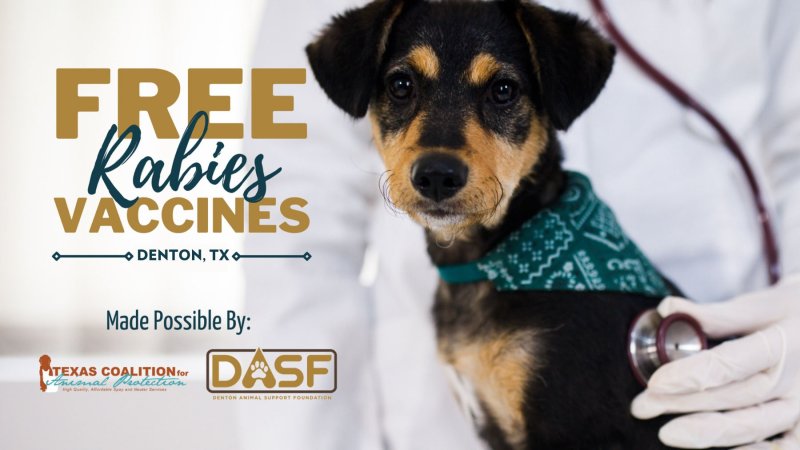Low Cost Vaccines For Cats Near Me – The vaccination clinic will operate on a first-come, first-served basis for both dogs and cats. We offer discounted rates on vaccinations, boosters, heartworm tests and microchips.
If you decide to test your pet for worms and it tests positive, we will schedule a follow-up exam to discuss treatment options.
Low Cost Vaccines For Cats Near Me

To save time and effort, make sure you have all the necessary information about yourself and your pet in advance by filling out the form for each pet. Please note that this clinic is for healthy pets only. If your pet needs an appointment, schedule an appointment by clicking here.
Low-cost Help For Pet Owners
Remember to always keep your pet under control, whether on a leash or on a leash. This may require transporting one person per pet in the case of large and multiple animals. Also, please be in line by 11:30am or be prepared to be turned away. Expect a wait time for both you and your pet.
For the safety of all concerned, please notify us in advance if your pet tends to become aggressive. It is essential to bring a muzzle and we highly recommend a muzzle basket for the best possible safety precautions.
Before deciding to vaccinate your pet, it is important to gather as much information as possible.
See the images for a general understanding of the vaccines your pet may need and when they should be administered. If your pet is less than 6 weeks old and still has a litter, he should be vaccinated first. However, if your pet becomes separated from its litter box, we recommend that you vaccinate it.
Low-cost Vaccine Clinic With Mwc Animal Welfare
For more details on vaccinating your pet and the difference between essential and non-essential vaccines, click on each image or scroll down for more information.
Please note that, although classified as a non-core vaccine in the figure, the leptospirosis vaccine is recognized as a core vaccine by the AVMA.
Rabies vaccine: Rabies is an incurable viral disease that affects the central nervous system of almost all mammals, including humans. It is spread through contact with the saliva of infected animals (such as skunks, foxes, raccoons and bats) through bites or skin lesions. Vaccination will make your pet more resistant to rabies if exposed to the disease and is an important step in protecting your pet and your family. Required by law for dogs or cats over 16 weeks of age in Colorado.
Distemper, Adenovirus, Parainfluenza, and Canine Parvovirus (DAPP) Vaccine: DAPP represents 4 viruses that together constitute the deadliest disease in dogs and puppies. These viruses attack the brain, intestines, liver, kidneys, eyes and lungs. Fortunately, you can prevent them with vaccination and limit your puppy’s exposure until the immune system is fully activated (2 weeks after the last vaccination at approximately 16 weeks of age).
Let’s Get Vaccinated!💉🩺 Our…
It is recommended to vaccinate the puppy starting from 6-8 weeks and repeat it every 4-6 weeks until the age of 16 weeks. Give at least 3 vaccinations, sometimes 4. For puppies and dogs older than 16 weeks that have not been vaccinated. previously 2 vaccinations. For prevention, 2-4 weeks are needed. This vaccine is given again within a year and then every 3 years for life. This is the main vaccine.
Lepto vaccine: Leptospirosis is an infectious disease that affects the kidneys and liver and is caused by a spiral-shaped bacterium called
This bacterium can also spread to humans. The most common way dogs contract leptospirosis is through water contaminated with urine, especially stagnant or slow-moving water, such as ponds, ponds, or lakes.
This is a non-essential vaccine. For the first injection or more than 15 months after the last injection, a booster should be administered within 2-4 weeks and repeated every year.
Cattfeinated Cat Cafe
This bacterium causes canine tracheobronchitis (kennel cough) is a highly contagious disease of the upper respiratory tract of dogs, kennel cough is transmitted through coughing and sneezing.
This is a non-essential vaccine and is recommended every year, although some boarders may need it every 6 months.
FVRCP stands for 3 viruses that together cause the most dangerous disease in cats and kittens. These viruses attack the immune system, brain, intestines, eyes and lungs. Fortunately, it is possible to prevent them with vaccination and limit the kitten’s exposure until its immune system is fully activated (2 weeks after the last vaccination at approximately 16 weeks of age).
This vaccine is recommended starting at 6-8 weeks and repeated every 4-6 weeks until the kittens are 16-18 weeks old. The vaccine should be administered at least 3 times, sometimes 4. For kittens and cats older than 16 weeks. have not been vaccinated before. 2 vaccinations 2-4 weeks apart are required for protection. This vaccine is injected again within a year and then every 3 years for life. This is the main vaccine.
Potter League Offering Low-cost Vaccine Clinics For Pets
FeLV stands for Feline Leukemia Virus, a viral infection that affects the immune system and bone marrow of cats. It is spread from cat to cat through contact such as saliva, grooming, sharing food bowls and fighting. It can also be passed from mother to kitten through the placenta. Cats with this disease have weakened immune systems and are susceptible to upper respiratory tract infections, dental infections, and tumors, including lymphoma. There is no treatment for FeLV. Cats at greatest risk of FeLV infection are those who may have been exposed to infected cats, either through prolonged close contact or through bite wounds. Such cats include cats that live with infected cats or have cats with unknown infection status, cats allowed outside of controlled areas where they could be bitten by infected cats, and kittens born to infected mothers. Although any cat infected with the virus can develop FeLV infection, kittens are more vulnerable than adult cats due to their immune systems. This vaccine is recommended for all cats that live outdoors and is also recommended in the first 3-4 years for cats that live indoors.
Cats should be tested for FeLV/FIV before receiving the vaccine to ensure they are free from the virus.
It is recommended to vaccinate from 12-16 weeks of age and repeat it 2-4 weeks after the first injection. Subsequently, the vaccination is repeated once a year for life for cats that live outdoors, and for the first 3-4 years for cats that live indoors. Testing is recommended every year.
There are three main places where parasites can infect your pet and threaten his health: the intestines, the blood, and the skin. The good news is that they can be prevented!
Low-cost Vaccination Clinic
There are many types of intestinal parasites that cause problems in dogs and cats. These include roundworms (Toxocara cati, Toxascaris leonine), hookworms (Dipylidium caninum, Taenia species, and Echinococcus species), hookworms (Ancylostoma), and tapeworms (Trichuris vulpis). Other parasites such as Giardia and Coccidia can also cause intestinal disease in pets. Intestinal worms can be a serious problem in young animals, almost all puppies and kittens have at least one type of intestinal worm, and up to 80% of adult dogs have intestinal parasites.
Pyrantel is a safe, effective and economical way to treat and prevent most intestinal parasites. Dogs and kittens need an oral medication every 2 weeks starting at the 4th week or as soon as possible and continuing through the 18th week.
Not all parasites are prevented by Pyrantel and therefore monthly deworming is recommended to cover further intestinal parasites in dogs. It is recommended to take the birth control pill once a month throughout the year for life.

Heartworms are spread by mosquitoes. Mosquitoes, when feeding on dogs or cats, can inject heartworm larvae into the bloodstream. These larvae will mature and eventually travel to the heart, living in the major blood vessels of the heart and lungs. They can cause heart failure and death if left untreated in dogs. Cats usually clear the infection on their own, but they can develop severe lung disease. Typical clinical signs of hookworm infection range from nothing to fatigue, coughing, and poor physical condition. Adult filariae are large, up to 15-36 cm long.
Acct Philly Vaccine Clinic
Because heartworms take 6 months to develop into detectable adults and the early stages of the worms are killed with monthly heartworm medications, puppies should not be tested until they are 6 months old. For adult dogs, a blood test is needed to determine whether adult heartworms require more intensive treatment. This test has been recommended for years. For dogs that are not in protection, further testing is recommended every 6 months.
Worm infections are easier to prevent than cure. A safe and economical preventive measure is a 1-month chewable tablet. It should be administered every 30 days, throughout the year, for life. Because the birth control pill is based on weight, puppies are weighed every month until they reach adult weight, at which time they can purchase the pill year-round. The pill kills only the early larval stages, so it must be given year-round. An advantage is that deworming once a month also protects against intestinal parasites. Once annual testing is recommended.
Insects, ticks and bugs


